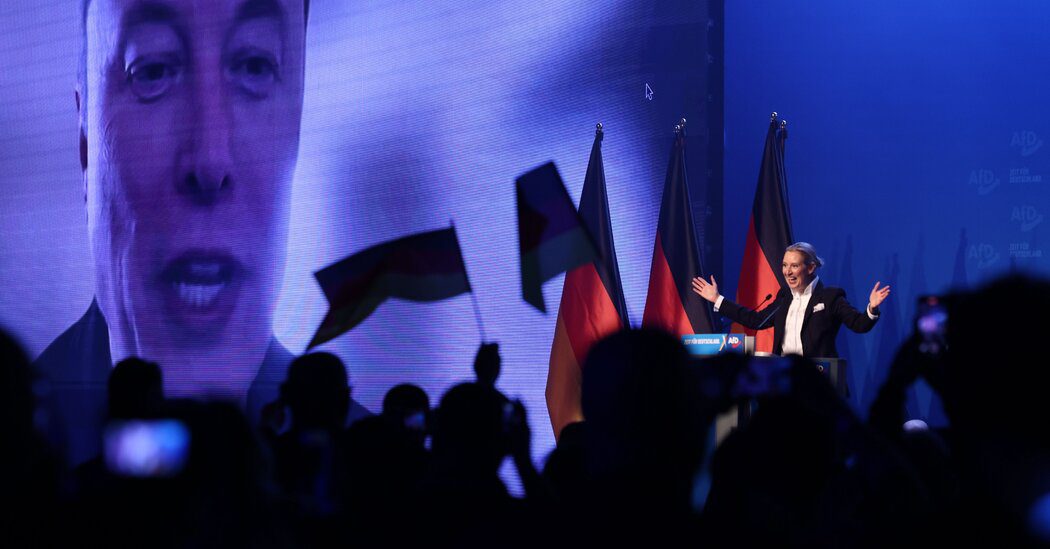

The hard-right political party, Alternative for Germany (AfD), may not have achieved the results its leaders anticipated in the recent election, but its impressive showing drew a congratulatory phone call from none other than Elon Musk.
On Monday morning, Alice Weidel, the AfD’s chancellor candidate, informed reporters that she had missed Mr. Musk’s call, the world’s richest individual and a close advisor to President Trump. After discovering the missed call the morning after her party garnered 20.8 percent of the vote, she shared that Musk personally reached out to extend his congratulations.
Later that day, Musk took to social media to again express his support, publicly sharing a message from Hungary’s authoritarian leader, Viktor Orban, with his own comment: “Indeed, congratulations @Alice_Weidel! At this rate of growth, @AfD will be the majority party by the next election.”
The AfD secured the second position in Germany’s national election, achieving over 20 percent of the votes, a considerable increase from their representation in 2021, and marking a historic high for any far-right party in Germany since World War II. However, Friedrich Merz, the leader of the victorious Christian Democrats and the likely future chancellor, has dismissed the idea of forming a coalition with the AfD, meaning Weidel and her party will remain on the sidelines.
The AfD advocates for stricter immigration policies, heightened deportations, and economic enhancements, yet certain factions within the party have been labeled extremist by German domestic intelligence agencies. Interestingly, Vice President JD Vance recently met with Weidel in Munich, causing a stir among European leaders by suggesting that mainstream parties should not exclude far-right groups like the AfD.
Musk made headlines in December when he publicly backed the AfD through a series of statements on his social media platform, X, followed by a 75-minute video discussion hosted with Weidel. In January, he further promoted the party by participating in a lively meeting in Halle, where he encouraged attendees to persuade their friends and family to support the AfD.
This level of public interference by a foreign national and White House adviser in a German election was unprecedented, especially when Musk remarked that Germany should shift its focus from past guilt.
However, Musk’s efforts appeared to have little impact on the AfD’s already strong polling figures. Co-leader Tino Chrupalla conceded before the election that while Musk’s notoriety might not sway potential voters, his endorsement had sparked interest and financial support from other business leaders.








